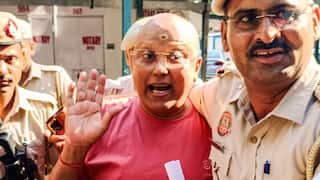50th anniversary of expulsion of all Asians from Uganda by Idi Amin a lesson in breakdown of democratic order: expert
Johannesburg, Aug 21 (PTI): The expulsion of tens of thousands of Asians from Uganda 50 years ago by dictator Idi Amin should be commemorated for the lessons all Ugandans learned, said an internationally recognised expert on reconciliatio.

Johannesburg, Aug 21 (PTI): The expulsion of tens of thousands of Asians from Uganda 50 years ago by dictator Idi Amin should be commemorated for the lessons all Ugandans learned, said an internationally recognised expert on reconciliation.
“When the democratic order breaks down, no one is safe,” said the UK-based expert Mohamed Keshavjee, himself a refugee twice after his family went into exile in Kenya in the 1960’s to escape the oppressive white minority apartheid regime in South Africa and then leaving Kenya for Canada when the crisis in neighbouring Uganda unfolded.
Keshavjee is a member of the steering committee set up in the UK to commemorate the 50th anniversary of the Ugandan expulsion.
Amin in August 1972 gave the country’s Asian population of around 80,000 just 90 days to leave Uganda, alleging that they were disloyal to the country, resisted social integration, and engaged in business malpractice.
About a quarter of them had been naturalised as second and third generation Ugandan citizens at the time.
Although this was denied by the Asian community, they rapidly sold up their homes and businesses, usually for a pittance to locals.
Many even fled to countries such as the UK, Canada, India, Pakistan, and a small number to neighbouring Kenya.
“Tyranny generally makes no distinction between race, class, colour, or creed. Human beings become expendable, and they search for a refuge wherever they can find it,” Keshavjee, who has maintained close relationships with friends in South Africa and Kenya, told PTI.
“The Indian communities, by and large, were lucky by being able to flee to countries which grudgingly or ungrudgingly accepted them," he added.
"Sadly, many more Ugandan Africans also lost their lives under the most brutal circumstances of Amin’s reign of terror,” he said, recalling how his family had rescued a former Ugandan cabinet minister from Idi Amin’s murder squads.
“It was in the early hours of the morning one day in August 1972 that former Attorney General of Uganda, Joe Zake, who had studied at the University of Fort Hare in South Africa, knocked on our door at our Nairobi residence,” Keshavjee said.
“Zake had walked part of the way from the Ugandan capital of Kampala to escape goons who had been sent by Amin to kill him for having served in the previous Ugandan cabinet." “For an Indian family resident in Kenya, many of whose members still carried a South African passport, to shelter Zake was a risky undertaking. The Kenyan government had openly declared that the country was no ‘dumping ground’ for fleeing Ugandan Asians, or for high-ranking politicians fleeing from Uganda,” Keshavjee said.
After much difficulty in getting travel documents for Zake and his family to leave the country, the Keshavjee family managed to get him and his family to London, from where they eventually settled in the US.
“Zake remained in the US for the next few years pending a change in Uganda, which took place only in 1979 when his cousin, Godfrey Binaisa, became president. Binaisa then invited Zake to become Uganda’s ambassador to the US — a post he held for some years. He passed on in the early 1980s,” Keshavjee reminisced.
“The Zake experience gave rise to a psychosis of fear among Asians in other parts of East Africa, and most of the Keshavjee family, as with many of the immigrant Indian communities, left Kenya for Canada, where today they are playing an important role as part of a robust civil society with one of them, Murad Velshi, becoming the first South Asian to be elected to the Ontario Legislature in the late 1980s,” said Keshavjee.
Keshavjee in 2016 was awarded the Gandhi, King, Ikeda Peace Award by Martin Luther King Jr. International Chapel at Morehouse College, Atlanta, Georgia, for his lifetime of work dedicated to mediation, peace, and human rights education.
Amin was ousted in 1979 after neighbouring Tanzania, which Amin tried to annex, assisted rebel forces within Uganda. He went into exile with his family in Libya and finally settled in Saudi Arabia until his death in 2003. PTI FH PY PY PY
(This story is published as part of the auto-generated syndicate wire feed. No editing has been done in the headline or the body by ABP Live.)







































